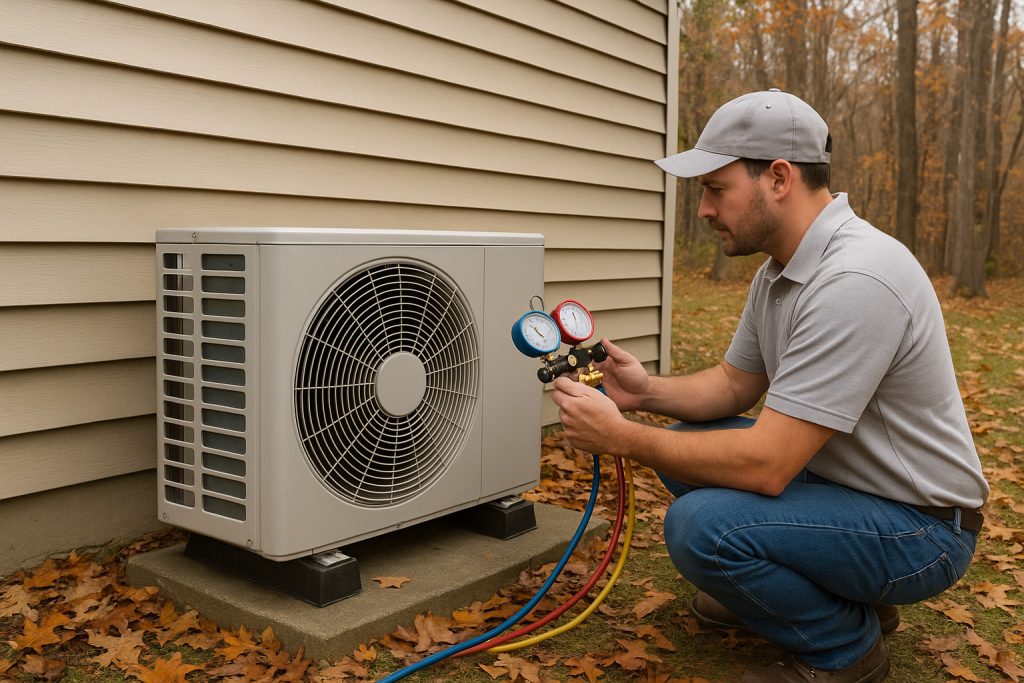As Pennsylvania homeowners seek efficient and cost-effective solutions for year-round comfort, heat pumps have emerged as a top choice. These versatile systems provide both heating in the winter and cooling in the summer, offering consistent indoor comfort throughout the year. Let’s go over the benefits of upgrading your HVAC system to a ducted heat pump or a ductless mini split.

What Is a Heat Pump?
A heat pump operates by transferring heat rather than generating it. In the winter, it extracts heat from the outside air and brings it indoors. In the summer, it reverses the process, removing heat from your home to cool it down. This method of heat transfer makes heat pumps more energy-efficient compared to traditional furnaces and air conditioners, which generate heat or cool air through combustion or electrical resistance.
Think of a heat pump as a refrigerator in reverse: while a fridge moves heat from inside to the outside, a heat pump moves heat from outside to inside during colder months and vice versa during warmer months.
Dual Functionality for Year-Round Comfort
One of the primary advantages of heat pumps is their dual functionality. They efficiently handle both heating and cooling needs, eliminating the need for separate systems. This not only saves space but also reduces maintenance and operational costs. With advancements in technology, modern heat pumps are designed to perform effectively even in colder climates, ensuring your home remains comfortable throughout the year.
Debunking Myths: Heat Pumps in Cold Climates
A common misconception is that heat pumps are ineffective in colder climates. However, advancements in cold-climate heat pump technology have addressed this concern. Modern heat pumps are equipped with features that allow them to operate efficiently even in sub-freezing temperatures. This makes them a viable option for Pennsylvania homeowners, providing reliable heating during the state’s cold winters.
Significant Savings on Utility Bills
Heat pumps are known for their high SEER2 (Seasonal Energy Efficiency Ratio 2) levels for cooling. These metrics indicate the efficiency of the system in converting energy into heating or cooling output. Higher SEER2 values translate to lower energy consumption and reduced utility bills. By upgrading to a heat pump, homeowners can achieve significant savings compared to traditional heating and cooling systems.
Financial Incentives for Pennsylvania Homeowners
Pennsylvania residents can take advantage of various federal and state incentives to offset the cost of heat pump installation:
- Penn Energy Savers Program: This program offers rebates for energy-efficient upgrades. While specific rebate amounts for heat pumps are not detailed, homeowners are encouraged to check eligibility and available incentives.
- Utility Rebates: Some Pennsylvania utilities provide rebates for ENERGY STAR® certified heat pumps. For instance, PPL Electric Utilities offers rebates up to $450 for qualifying air-source heat pumps.
By leveraging these incentives, homeowners can significantly reduce the upfront cost of installing a heat pump.
Contact Regal Plumbing, Heating and A/C to schedule an appointment for a heat pump installation in Red Lion, PA. Committed to Service, Committed to You, Since 1974.
